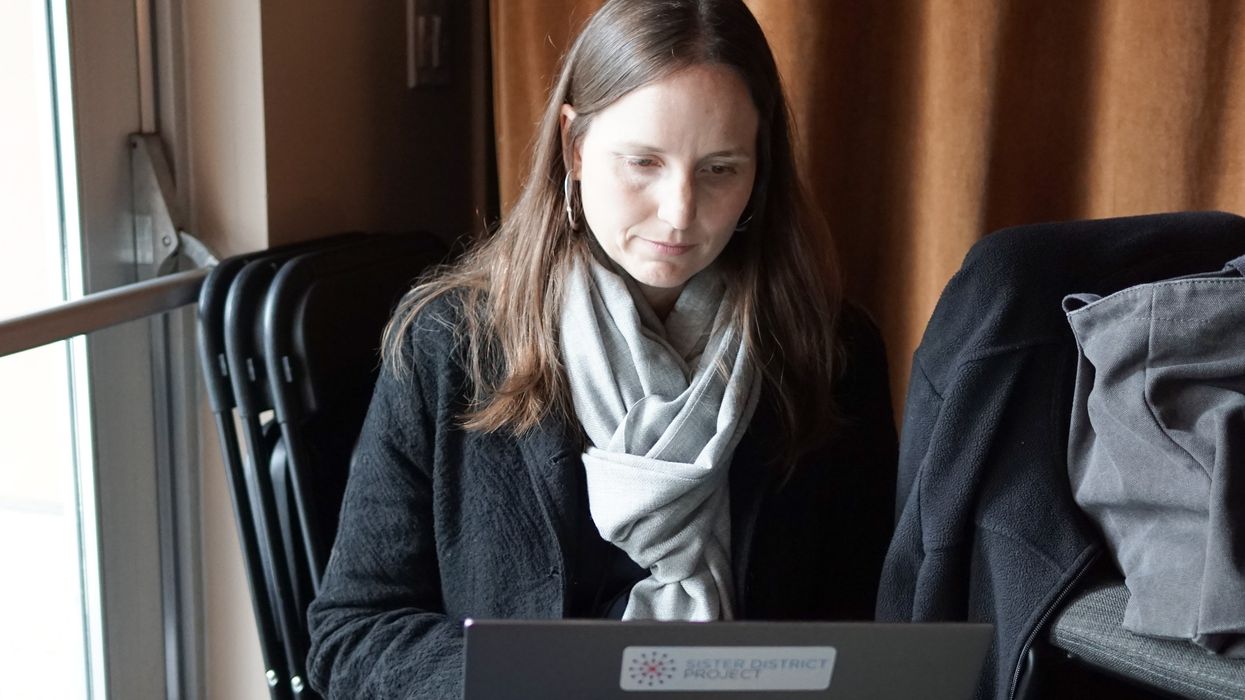After a dozen years as a federal public defender, Rita Bosworth and three colleagues started the Sister District Project the week after the last presidential election. She is now CEO and has watched its campaign volunteer roster swell to 45,000 and its fundraising for Democratic state legislative candidates crest $2.8 million. While the group's work is overtly partisan, its objective is aligned with one of the democracy reform movement's main goals. Turning statehouses more blue this fall, Bosworth argues, will lead to less partisan gerrymandering and a fairer redrawing of legislative and congressional boundaries for the 2020s. Her answers have been edited for clarity and length.
What's the tweet-length description of your organization?
A grassroots political nonprofit that organizes volunteers in progressive communities and "sisters" them with Democratic state legislative candidates in other parts of the country who need resources to win.
Describe your very first civic engagement.
I was involved in 4-H as a kid. And I spent a lot of time volunteering in my community — visiting senior centers, gardening and beautification projects, and food and toy drives.
What was your biggest professional triumph?
I have always worked in fields where it takes years to achieve what you might consider a victory, so it's hard to pinpoint a moment. I spent many years litigating against the racial disparity in sentencing between crack and powder cocaine offenses. Eventually the law was changed to reduce the disparity, which had a real and positive impact on many of my clients. At Sister District, we are starting to see power shifts and policy changes in states after several years of concentrated effort — ours and many others' — and that's incredibly rewarding.
And your most disappointing setback?
Setbacks in social justice work are often structural, put in motion years before you started doing the work. Working in criminal justice allowed me to see how our laws, policies and processes keep people from succeeding, particularly poor people of color. No matter how hard you work, you can't address these systemic problems. Working in politics is similarly challenging. Our electoral systems create almost insurmountable obstacles to free and fair elections, rooting out corruption and maintaining a fair balance of power. The tools available to make change are limited and require a lot of resources. So the hardest part of this work is acknowledging you will always be walking uphill both ways, and maintaining the mental toughness and hope required to keep doing it.
How does your identity influence the way you go about your work?
I have always been a little obsessed with fairness, which can be challenging when we live in a world that is profoundly unfair in almost every way. But there are still things we have the power to make more fair, if we commit to doing so. I like to gather all the facts, talk to all the stakeholders and make the best decisions possible to benefit the greater good of society. I'm also always thinking of the country's vast economic and racial divisions, which are compounded and perpetuated by the status quo, and what I can do to break those down.
What's the best advice you've ever been given?
Don't kiss up or kick down. Just be your authentic self.
Create a new flavor for Ben & Jerry's.
There's a reason I'm not an ice cream maker.
What is your favorite TV show or movie about politics?
I admit liking political shows that give an uplifting view of how we wish politics could play out. Recently I've enjoyed "Madam Secretary," the CBS series that ended last year about a former CIA analyst and political science professor who becomes secretary of State.
What's the last thing you do on your phone at night?
Check my schedule for the next day and set my alarm.
What is your deepest, darkest secret?
Sometimes I consider dropping it all, moving to the beach and writing screenplays.




















